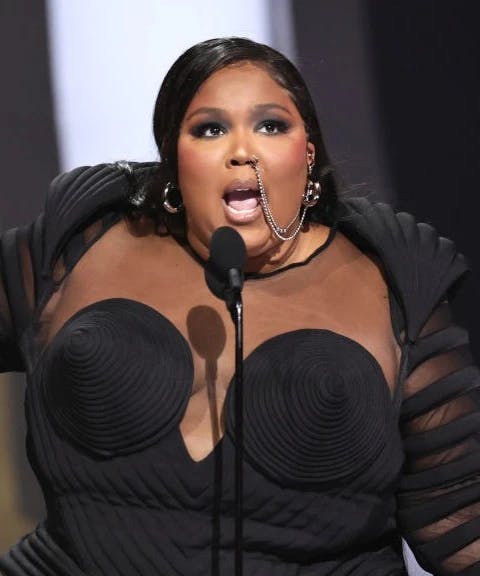Lizzo Claims Claims There Are Laws "That Are Oppressing Us" In Her VMA Acceptance Speech
At the MTV Video Music Awards last night, Lizzo was granted the Video for Good award. She used her acceptance speech as the chance to clap back at criticism about her in the press, as well as highlight some social issues.

Lizzo has been one of the most popular artists over the last year, with her song "About Damn Time" rising to the biggest hit of the summer. She has also been highly criticized for her lewd videos, nude photos on social media, and radical progressive takes on politics and culture. During her VMA acceptance speech, she decided to highlight a few things she's passionate about.
Lizzo Claims Claims There Are Laws "That Are Oppressing Us" in Her VMA Acceptance Speech
When Lizzo accepted her award, she took to the stage to celebrate and send a political message. She vaguely responded to people who have criticized her for her weight: "To the b*tches that got a lot to say about me in the press… ‘Lizzo, why don’t you clap back?’ Because I’m winning, h*e!”
People are speculating that she's clapping back at comedian Aries Spears, who made comments about her health and figure, pointing out all the risks that come with obesity, such as heart disease and diabetes.
"Y'all will jump on me for making jokes but y'all won't f---ing be real and go, 'Sister, put the éclair down. This ain't it. It's treadmill time,'" he said in a video that went viral.
Lizzo also used her speech to talk about so-called oppression she faces in her life.
“Your vote means everything to me, it means everything to making a change in this country … When you’re voting for your favorite artist, vote to change some of these laws that are oppressing us," she said.
The clip has gone viral on Twitter and many people are responding and demanding to know which laws are oppressing her as she didn't name any in her speech. Many are posting pictures and videos of Lizzo climbing on board to a private jet, asking how she could possibly be oppressed while living a life of privilege.